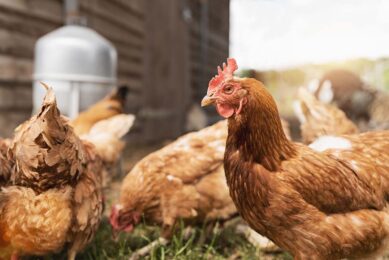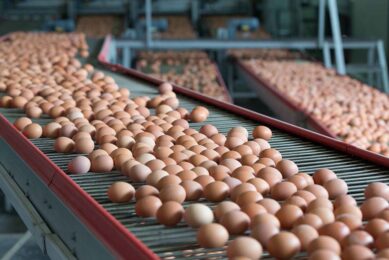Dioxin in free-range eggs
Researchers of the Wageningen University in the Netherlands have detected high levels of dioxin, a carcinogenic compound, in free-range eggs. Levels found in eggs from these happy birds, who have access to grass, soil, insects and worms, prove to be extremely high.
Several flocks produce eggs which contain levels several times higher than the official minimum safety level. This once again raises the question of how health these organically produced eggs are. Claims, often made by animals welfare people and supporters of organic farming, that organic food is healthier than food produced by modern farming seem to be less trustworthy than the claimants want consumers to believe.
Add this to the extra risk these outdoor birds pose for spreading avian influenza, and this raises the question of whether the poultry industry should continue to convert its production systems into more organic or free-range housing types. If these systems cause a threat for human health, not only in spreading AI but also in not meeting the minimum food safety standards, it would be wise to rethink these issues and initiate discussions with public opinion groups and authorities to move developments into a different direction. These issues once again prove that food production, including food of animal origin, can only be safe if it is done in a controlled manner. Environment controlled or confined housing systems meet these criteria, so why should we not reconsider the issues that motivated the use of battery systems about half a century ago? But then we have to have a close look at bird welfare issues.
Initiatives recently presented at the international exhibition for innovative livestock production VIV Europe, in the Netherlands, indicate that designers of housing systems are on the right track. They demonstrate that they have an open eye for bird welfare, bird health and food safety issues. Over the past years animal welfare has been a leading factor in everything the industry has had to deal with. Today, food safety is a leading issue, and with the detection of high levels of dioxin in eggs, we may have to find a compromise in how we as a poultry industry have to house and manage birds.
Wiebe van der Sluis
Join 31,000+ subscribers
Subscribe to our newsletter to stay updated about all the need-to-know content in the poultry sector, three times a week. Beheer
Beheer








 WP Admin
WP Admin  Bewerk bericht
Bewerk bericht